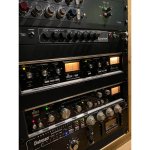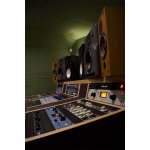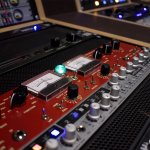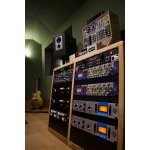Show Off Your Studio: The Nest is Geoff Swan’s hardware haven
Accredited for his work with Charli XCX, Ed Sheeran, Rudimental and more renowned artists, British engineer Geoff Swan is no stranger to high-quality hardware.
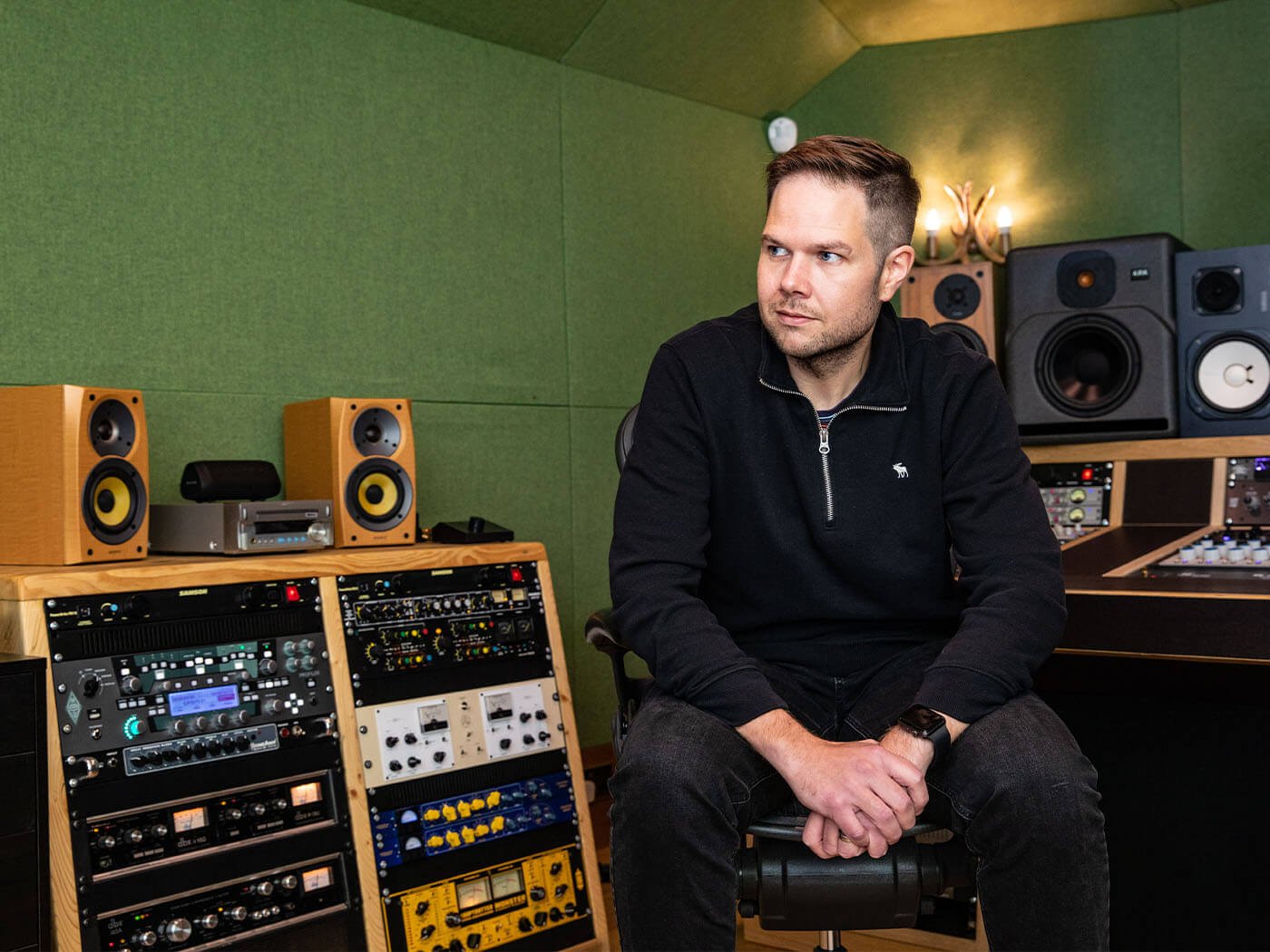
Website geoffswan.com
Socials Instagram
Key kit
- Black Box HG2
- Buzz Audio REQ-2.2 Resonance Mastering Equaliser POM-PYE Compressor
- Locomotive Audio 14B Compressor
- Locomotive Audio Weight Tank Compressor
- Burl Audio B2 Bomber ADC
Grammy-nominated mix engineer Geoff Swan’s career began in 2008 when he co-founded The Ranch Production House recording studio in Southampton, just one year after graduating from Staffordshire University. By 2013, he was an assistant to Mark “Spike” Stent, one of the most successful British mixers of the 21st Century, and received a Grammy nomination for working on Ed Sheeran’s X album and Thinking Out Loud. Now occupying his own space, The Nest, Geoff has mixed several projects for Charli XCX and recently worked on the soundtrack for Scoob! In this week’s Show Off Your Studio, the gear-lusting Briton tells us why The Nest has such an eclectic range of monitors, how to record the magic of a live performance and why the Teenage Engineering OP-1 would be his castaway companion.
Tell us a bit about the studio, Geoff.
I’m based on the south coast of the UK. I built the studio around three years ago and it’s first and foremost a mixing room. The primary idea was to build somewhere that would allow me to work from home and mix records, but also had the ability to fly in overdubs and record when necessary; there is a small booth which doubles as a prep room. Aside from creating a great acoustic environment to work in, I wanted somewhere that felt warm and comfortable – keeping the colours and decor soft so that it’s a calming place to be creative.
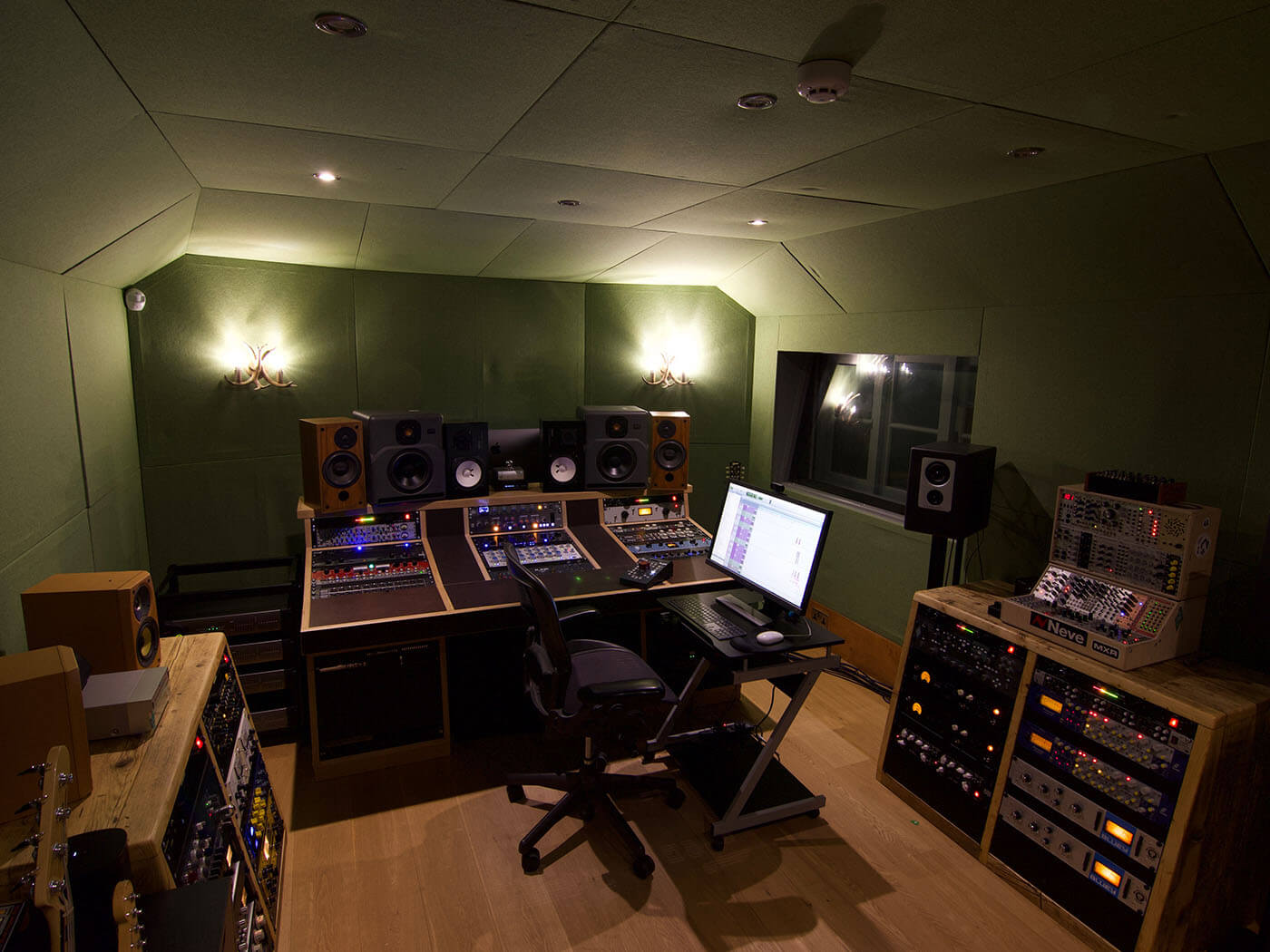
How do you use your studio?
The majority of my work is mixing so I spend most of my time here. It’s essential for me to work in a room I know and can trust. When we built this space I had a specific idea of how I wanted it to sound. I didn’t want it to be anechoic, so while the walls are treated with a variety of acoustic treatment, it’s controlled but not too dead. The studio is totally private, I don’t dry hire it so it’s a real luxury to be able to step outside my back door and just get to it.
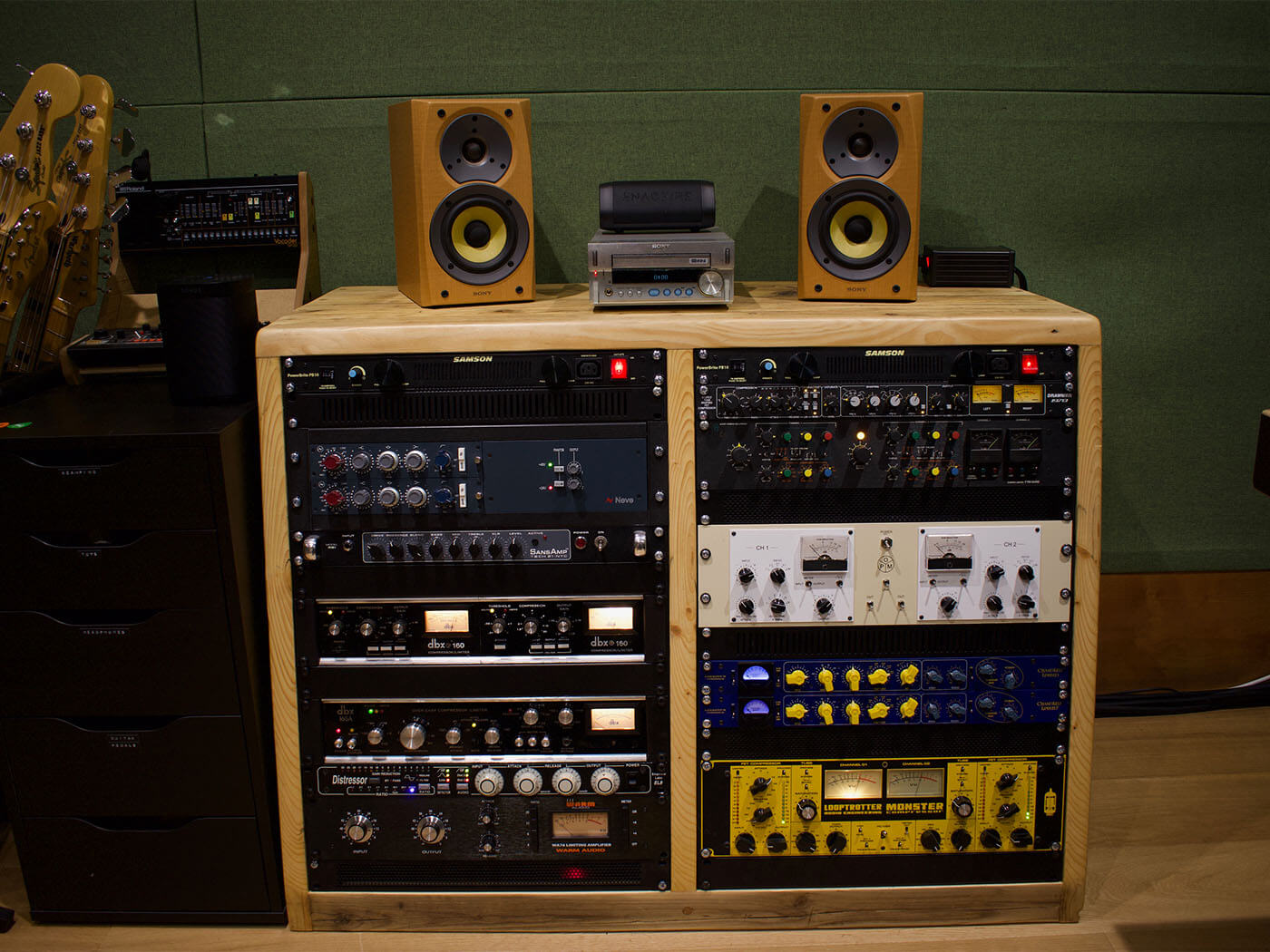
Which DAW do you use?
I primarily work on Pro Tools – I’m a hardcore ProToolian. Logic Pro, Ableton Live and FL Studio are great tools when I’m working on additional production, so I occasionally use those. When I’m mixing, I use a lot of hardware compressors, EQs and saturators, so being able to have them set up as hardware inserts and know that I’m not going to run into latency and delay compensation issues is a big deal. I feel like Pro Tools is the most homogeneous to an analogue process in terms of layout, routing and feel. Another massive plus point for Pro Tools is the audio editing. Out of all the DAWs I’ve used, I find it’s the quickest and most intuitive for that, with features like tab to transient and the ease at which you can make changes is second to none.
How do you keep a live performance feel when recording at studios like Abbey Road?
I don’t do a lot of tracking these days but when I do record live, one of the most important aspects is to ensure players can have as much visual and physical communication as possible. You’re always going to encounter spill between players and instruments so it’s important to turn that into a positive thing. It’s great to create as much isolation as you can without compromising the communication, but inevitably some spill is going to happen. It’s beneficial to make sure phase relationships between mics and DIs are all working together in a positive way, then embrace whatever spill you encounter and treat the sources gently.
You’ve mixed some pretty high-calibre artists, and we notice you have a few guitars in the studio. Does having a musical background help to inform the mixing process?
My gateway drug to music was the guitar; I’m not a great player but I love guitars hand-in-hand with amps and pedals. They were my first experience of getting geeky with equipment and led to my interest in studios. Having a musical background is definitely beneficial when doing additional production or mixing. It helps to be able to communicate with producers and artists on that level as well as informing decisions you make during the process.
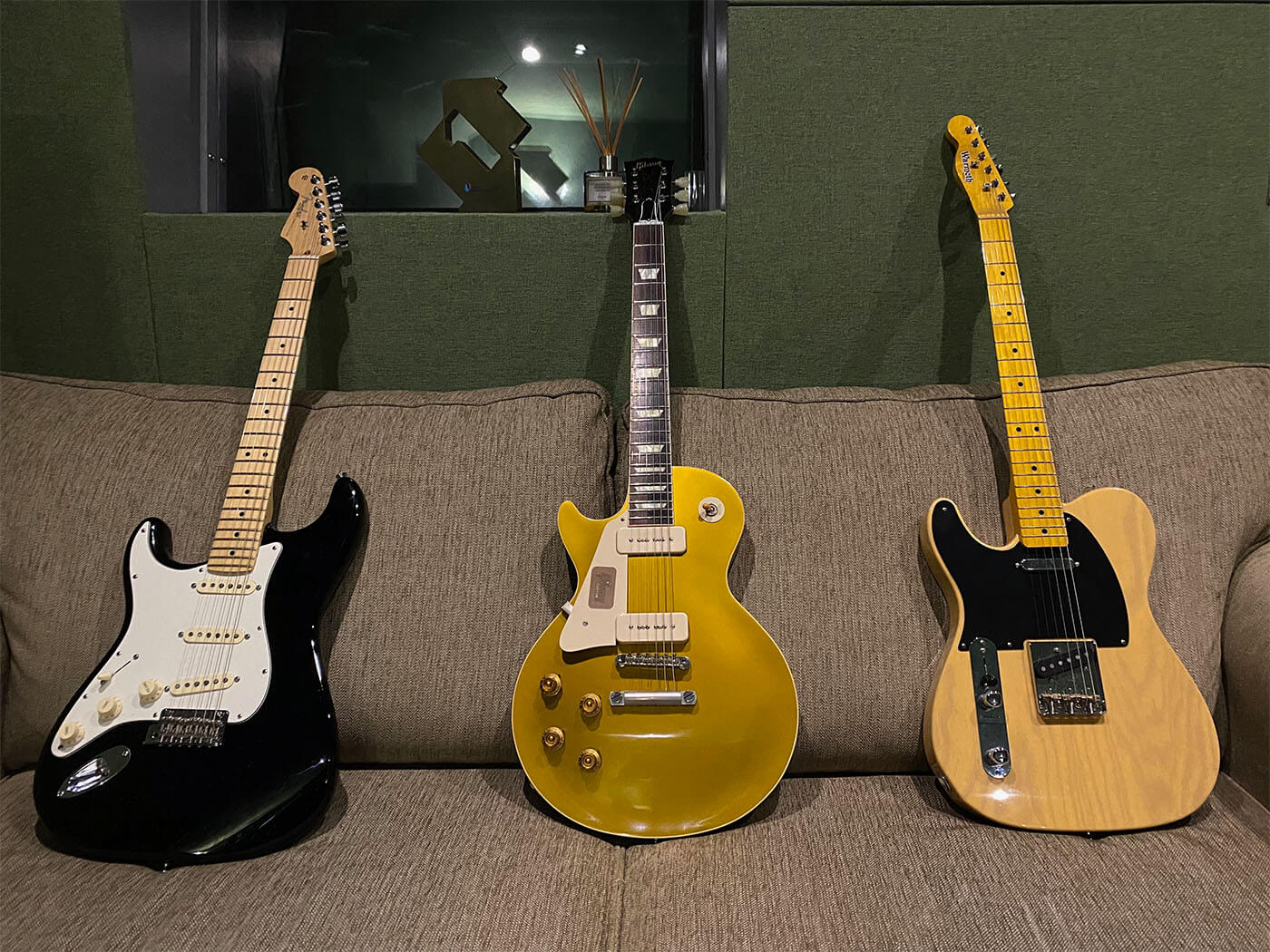
We’re liking the little modular rack you’ve got set up! Can you tell us a little bit about it?
That’s my guilty pleasure. I love making music and creating purely for myself and while I use the individual modules occasionally in a mix (like a filter or a distortion), I mostly use the modular to make little loops and samples for my own amusement. It’s a great toy to have to hand. For mixing, the Wasp filter is a go-to as it’s got a really distinct tone. If I’m using the modular stuff in that way, you really have to commit to it. It’s not practical to run it as an insert and recall each time you do a mix revision as it would never come back exactly the same, which, in my opinion, is the beauty of it.
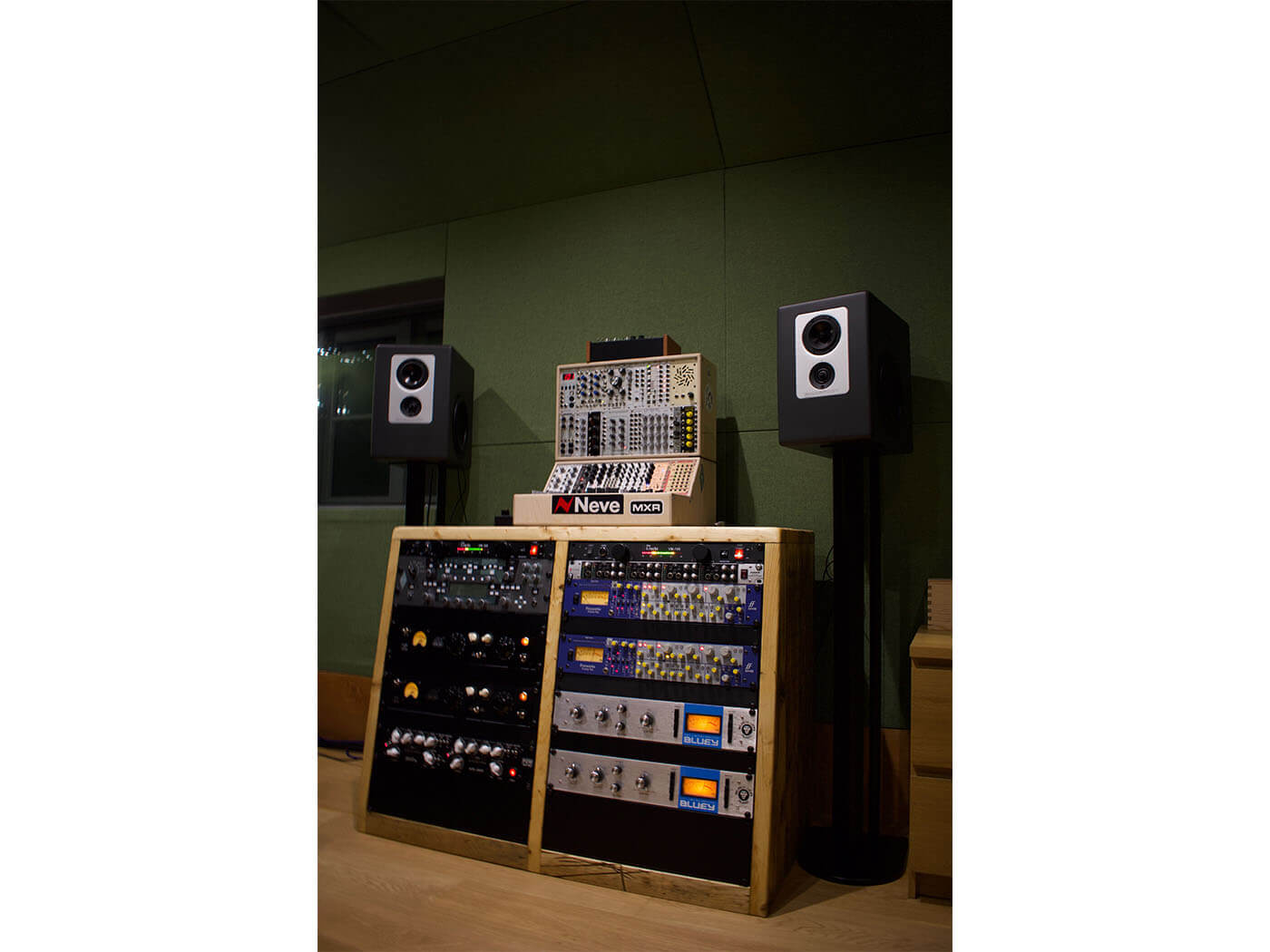
What is your favourite piece of gear?
This changes regularly. At the moment I would say the Locomotive Audio 14B compressor. It’s a complete work of art, both in build and sound. I love it on vocals; quite often not even compressing but just running the signal through it, driving the input and output transformers. It’s really colourful and adds a unique thickness and saturation. I’ve read that the idea behind it was to give it the front end of a UREI 1176 and the back end of a Gates STA- level.
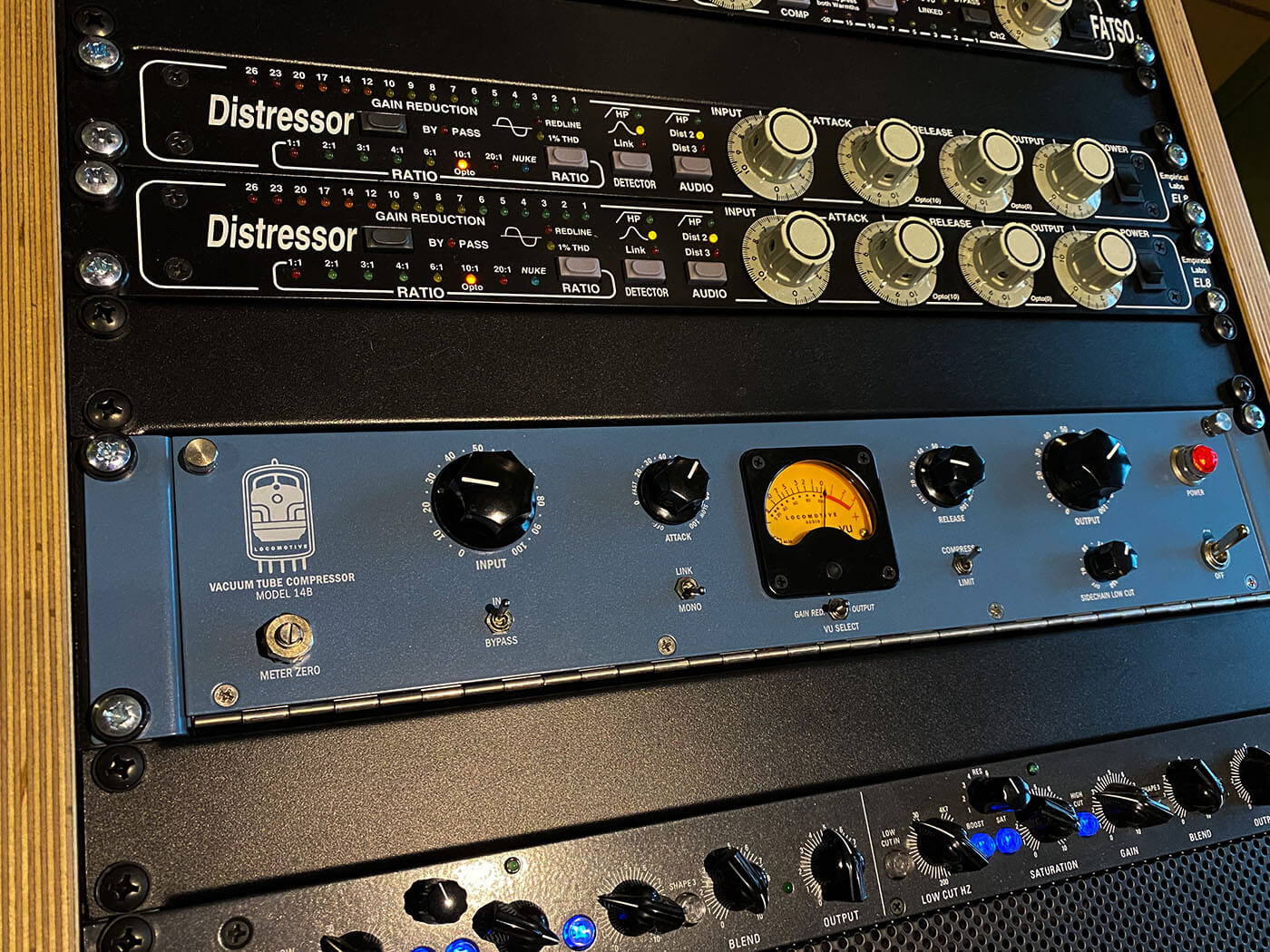
Eric Strouth, the man behind the company, has really come up with something remarkable, in that it sounds classic but also really individual. He also builds the Weight Tank compressors which have become a firm favourite of mine.
If you were left on a desert island, what one item would you take with you to make music with forever?
A Teenage Engineering OP-1 for sure. Those things are endless fun and you’ve pretty much got a whole studio in a tiny box. I love how tactile you can get with it and how nutty the sounds can be. I’d definitely use it to sample the local wildlife on the island and if I was allowed the radio receiver you can get for it, see if I can pick up any signs of life to keep me company!
What’s been the biggest investment in your studio? Was it worth it?
Aside from the studio build itself, I would probably say my Buzz Audio REQ 2.2 has been my biggest purchase. It’s one of those pieces of gear that I attached the famed mythology of “If I buy this it’s going to make all the difference”, and 99 per cent of the time, with other gear, that’s not true. But this time it totally paid off. I loved the sound of the unit when I used one previously and I felt like it would be the perfect mix bus EQ for me. It basically sits on my mix bus for most records and allows me to get hands-on with the overall sonics in a really gratifying way. The saturation function on it is excellent and definitely adds a bit of colour which works great in tandem with the super silky choke EQ bands.
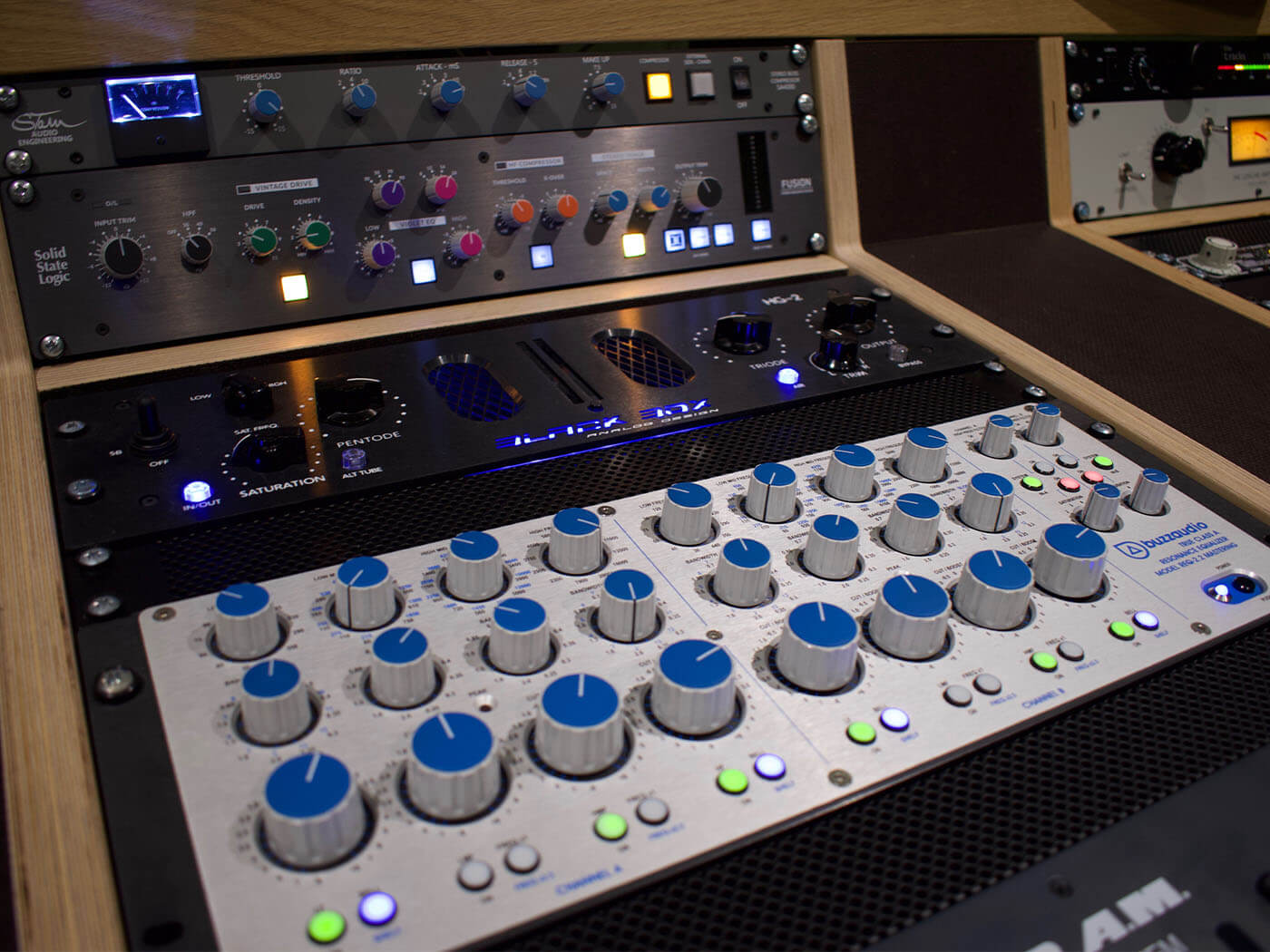
How did you go about getting the acoustics right in the studio?
I worked with friend and general musical and acoustics genius Chris Binns, who guided me through the process and stopped me making any major errors. We based the design on some of my favourite rooms and Chris understood what I was looking to achieve – a space that gave me accuracy but still had some character. We had to consider the soundproofing aspect and the response of the room. Obviously, I don’t want any external factors to interfere with what I’m hearing so we went with a room within a room design. This allowed the internal studio room to be completely decoupled from the outer building, which has been really beneficial in stopping transmission.
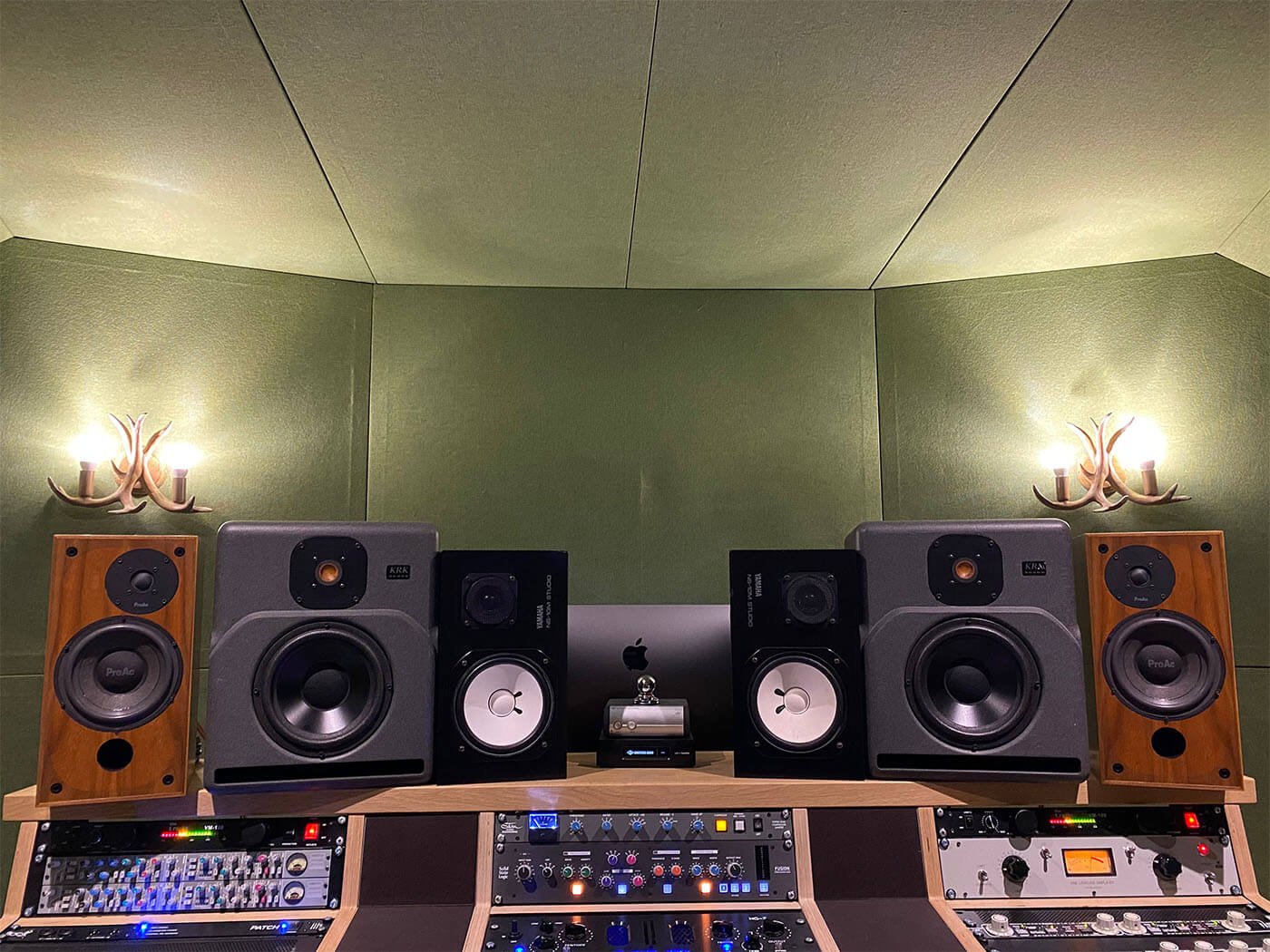
For the internal acoustics, we made double-sided rock-wool Flexi baffles that hang in the stud work cavities and run around the whole room, with two layers of them at the rear of
the room and behind the monitoring position. We then covered those baffles with Cara fabric panels that are backed with melamine foam to help control the high frequencies.
Can you tell us a little about your monitoring choices? There are a few old-school speakers we see in there…
I spend most of my time listening on Yamaha NS-10s, for pretty much the same reason everyone that works on them says they do: they make you work really hard and when it feels good on them, you know it’s going to translate well. I also have some old KRK 9000Bs, a pair of Barefoot Footprint 01s, some Pro-Ac studio 100s, which I swap out with a pair of Arendal Monitor 1723 from time to time, and a load of Hi-Fi and Bluetooth speakers.
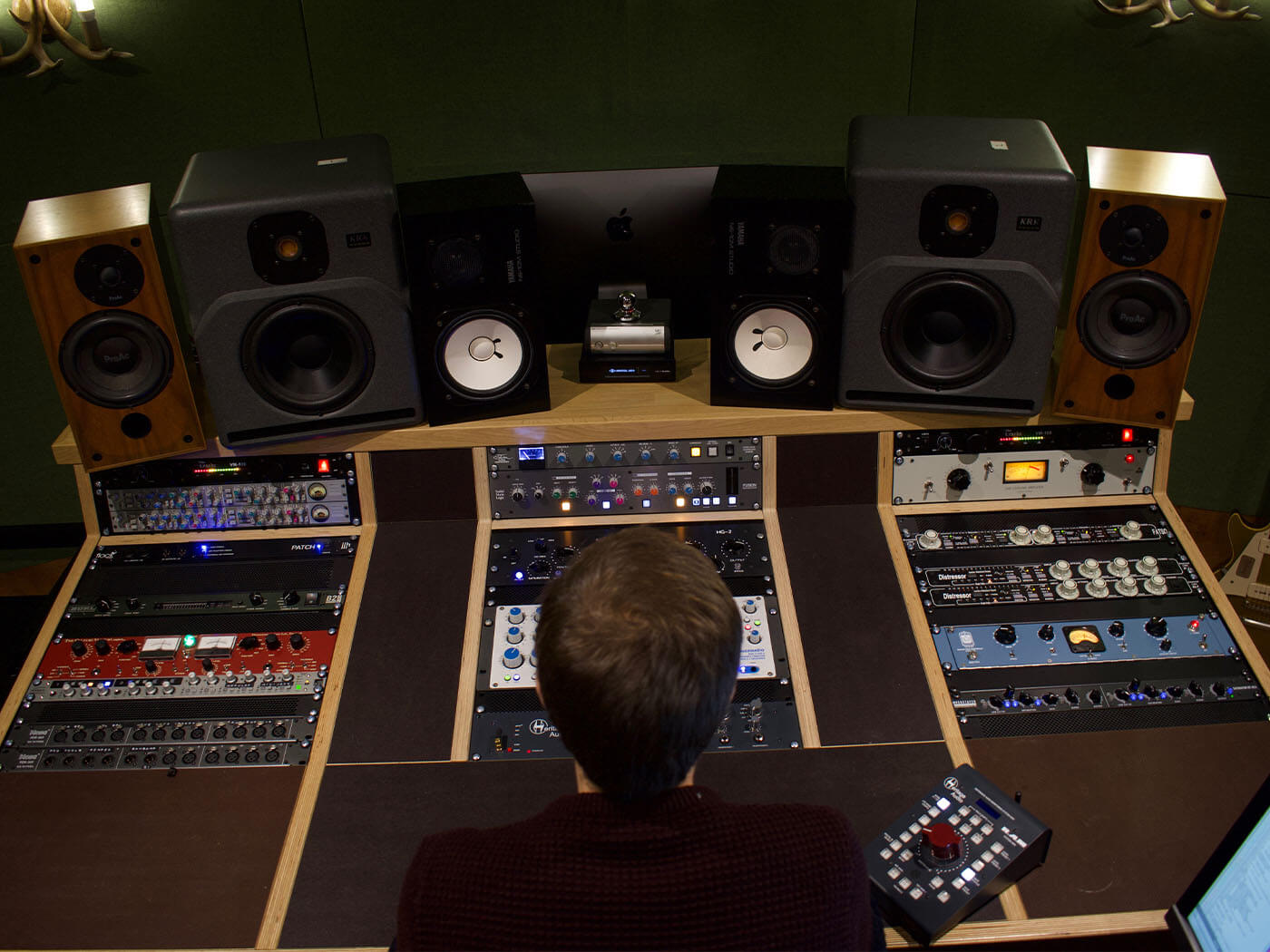
The NS-10s and the KRKs I work on because I’ve spent more hours in front them than any other speaker and I trust my mix decisions on them completely. The Footprints are the first active speaker I’ve fallen in love with in a long time – as soon as I heard them, I knew they would integrate really well into my setup. The detail in the sub is incredible but they’re still very pronounced in the mid-range which I really like. The bottom end is also controlled whether you’re listening at low levels or cranking them right up to 11.
What is your dream piece of gear?
I’m really lusting after a POM Fairchild at the moment. POM builds a Pye compressor and a Ridge Farm boiler clone as well, both of which I have and love. The Fairchild looks incredible and it’s definitely a case of want rather than need on that one.
Do you have any frustrations with your current set-up?
I’m running out of space, which definitely limits what I can do in the future. The pace and turnaround times of modern records mean we need to recall sessions and be ready to edit very quickly on most projects. I never want anyone I’m working with to be waiting too long for me to get them a new pass. My hybrid setup works really well in that regard but I’m a gear hound at heart so I’m always looking to add something new to the setup. I guess I could get rid of the sofa at the back of the room and put in more racks?
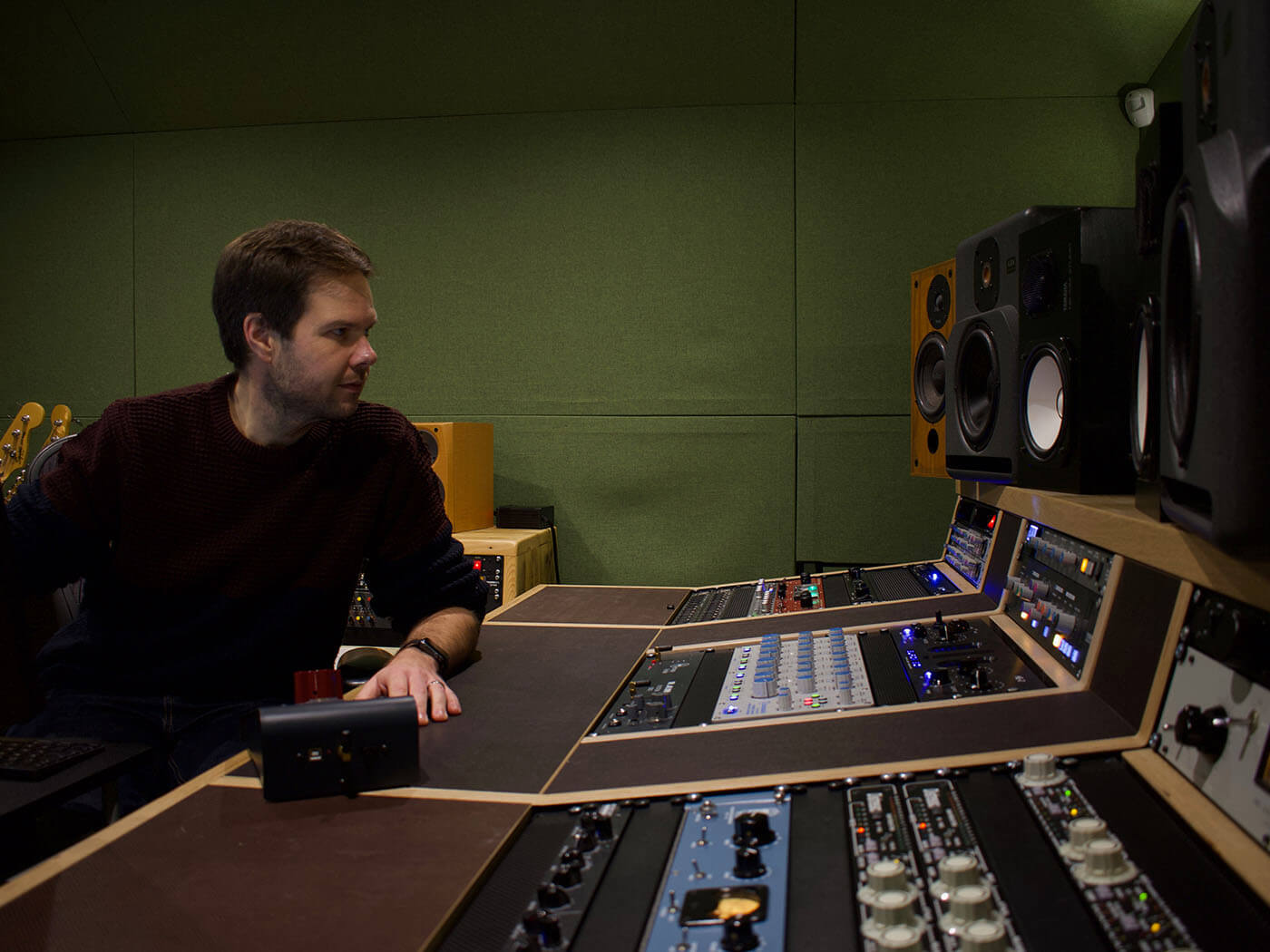
What is your top piece of production advice?
When dealing with a traditional song, keep it simple and make sure every sound counts and serves the song positively. I always think of production as the frame around a picture – it should complement and enhance it but not draw your attention away from the song. It’s important to think about the sounds and production elements you use in the context of how they work with the other elements, rather than getting too attached to a single part or sonic in isolation. That can often send you down a rabbit hole and blur the main thing we’re all trying to achieve which is to enhance the emotional connection and journey of a record.
What is the one piece of advice you would give someone starting out building a studio?
Build the best room you can afford to and do it once, don’t scrimp on it. I’ve built several studios in the past and the problems we encountered with them were split pretty evenly between what we spent on the builds and a lack of knowledge. That led to having to spend more money down the line to correct issues we should have got right in the first place, which meant not easily being able to build that important trust we all need in the spaces we’re working in. You can have all the gear in the world and the greatest pair of speakers, but the fundamental importance of a good listening environment you can trust is worth more than anything.
Learn more about Geoff Swan’s work at geoffswan.com
Do you use a studio that we all need to see? Get in touch at editors@musictech.net and your gear could be featured next.
For more studio posts, check out our Studio page.
